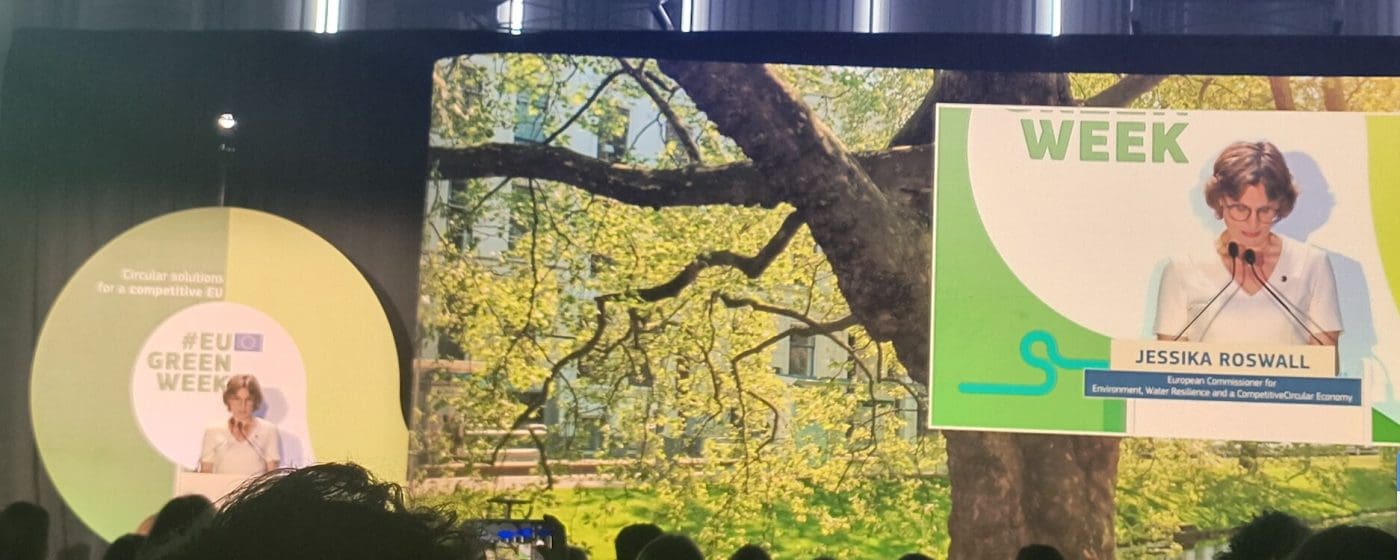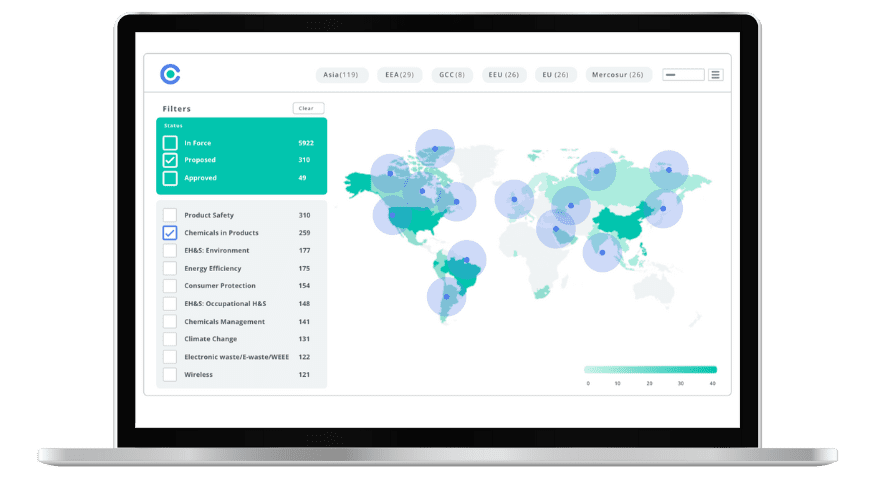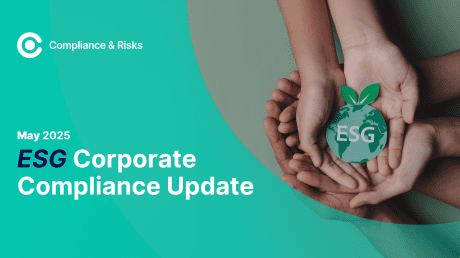
Key Takeaways from EU Green Week

This blog was originally posted on 18th June, 2025. Further regulatory developments may have occurred after publication. To keep up-to-date with the latest compliance news, sign up to our newsletter.
AUTHORED BY MICHELLE WALSH, SENIOR REGULATORY COMPLIANCE SPECIALIST AND TEAM LEADER, COMPLIANCE & RISKS
I recently had the pleasure to attend the EU Green Week conference on “Circular Solutions for a Competitive EU,” held from 3 to 5 June 2025 in Brussels, Belgium.
It was an inspiring few days organized by the EU Commission’s Directorate-General for Environment where various stakeholders shared their views on the difficulties we are facing transitioning from a linear model to a truly circular one particularly given Europe’s limited natural resources.
Key trends I noted from the conference included the necessity for structured information sharing, green procurement to be used as a tool for circularity, a strong call for proper collaboration, the lack of competitiveness with products originating from outside the EU, and major concerns over the price of virgin raw materials that can be cheaper than recycled materials.
New Circular Economy Act
Hot on the agenda was the new Circular Economy Act (CE) which is expected to be adopted by the EU Commission by the end of 2026. The EU Commission announced there will be a public stakeholder consultation on the new Circular Economy Act to be launched very soon.
What are the Goals of the New Circular Economy Act?
The key aims of this new CE will be to:
- Boost demand for secondary raw materials
- Increase the role of green public procurement
- Drastically increase recycling of critical raw materials
- Accelerate Europe’s Bio-economy
- Move towards Circular Batteries Systems and Circular Eco-design Systems
How can Europe Shift from a Linear to a Circular Model?
There were a number of interesting panel discussions on how Europe can shift from a linear to a circular model. Ideas discussed included a clear need for:
- Positive financial mechanisms other than Extended Producer Responsibility (EPR)
- Educational training of managers and engineers to be able to calculate real circular economy impacts for their business
- Harmonization of Member State implementation of EPR to remove fragmentation
- Incorporating social partnerships and awareness programs for all parties
- The Circular Economy Act could provide resource productivity targets to match climate change target
- Member States could move from taxing labor to taxing materials
Other hot topics under discussion included:
- New Bio-economy Strategy to be adopted by the end 2025. A public consultation is still open until 23 June 2025 for stakeholders who wish to comment
- The EU Joint Research Commission will publish a new report very shortly on the biomass mandate (driven by EU Renewable Energy Directive REDII) discussing competition for biomass, biomass governance and policy coherence
- Implementation of the Revised Industrial Emissions Directive, although welcomed by industry, is proving challenging due to the over technical nature of this piece of legislation
- The European Industrial Emissions Portal can be used as a tool to provide information on industrial pollution and emissions from large industrial facilities in the EU
- The EU has adopted a new EU Water Resilience Strategy
The trend towards a more circular economy, including the right-to-repair, is not isolated to the EU. In April 2025 I presented a webinar ‘Prepare to Repair: 2025 Right-to-Repair Requirements in the EU, US and Beyond with my colleagues Kelly Bugiera and Samantha Anguiano, where we discussed the key right-to-repair obligations in the EU, US, and more.
Reflection and Conclusion
Despite two Circular Economy Action Plans and the EU Green Deal, Europe is not truly circular and we have a lot of roadblocks which the new EU Circular Economy Act will need to tackle.
A significant challenge is the clear lack of competitiveness faced by EU products. This stems from the sheer volume of unchecked imports bypassing stringent product compliance requirements.
What was inspiring was to see that there are a lot of really good initiatives, tools and sustainability projects out there which are at the forefront of Circular Economy that we can learn from. Just to name a few:
- Circular Economy Stakeholder Platform (information sharing platform for stakeholders of Circular Economy)
- Germany Ecodesign Kit (Federal Environment Agency)– provides ecodesign information on how to make products recyclable
- Circular Cities and Regions Initiative (CCRI) supports Circular Economy in building sector for cities
- Kamp C – Example Model for circular procurement of buildings in Antwerp, Belgium
- Cities4Forests by World Resources Institute is an alliance of cities acting to conserve, restore and sustainably manage forests and nature to support human well-being
- Closer Project on critical raw materials to create a European closed loop for semiconductors
- Repair Map developed by Repair Together shows a map of where to find repairers in Belgium
Discover more about how our Circular Economy Solutions can help you stay on top of your circularity obligations!


Stay Ahead Of Regulatory Changes like the EU’s New Circular Economy Act
Want to stay ahead of regulatory developments in circular economy?
Accelerate your ability to achieve, maintain & expand market access for all products in global markets with C2P – your key to unlocking market access, trusted by more than 300 of the world’s leading brands.
C2P is an enterprise SaaS platform providing everything you need in one place to achieve your business objectives by proving compliance in over 195 countries.
C2P is purpose-built to be tailored to your specific needs with comprehensive capabilities that enable enterprise-wide management of regulations, standards, requirements and evidence.
Add-on packages help accelerate market access through use-case-specific solutions, global regulatory content, a global team of subject matter experts and professional services.
- Accelerate time-to-market for products
- Reduce non-compliance risks that impact your ability to meet business goals and cause reputational damage
- Enable business continuity by digitizing your compliance process and building corporate memory
- Improve efficiency and enable your team to focus on business critical initiatives rather than manual tasks
- Save time with access to Compliance & Risks’ extensive Knowledge Partner network

Navigating the Digital Product Passport: What are Your Compliance Obligations?
Join us for an overview of the key obligations under the Digital Product Passport (DPP), a new requirement for numerous products across the EU, aiming to increase product transparency and sustainability.


